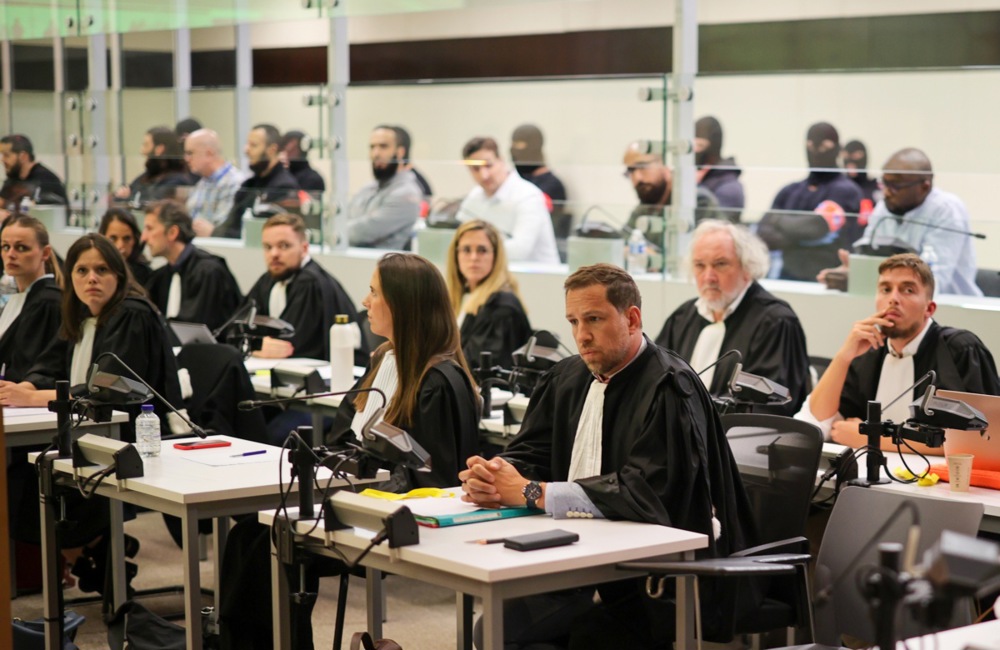Members of an Islamist terrorist group who planned to attack Belgian Prime Minister Bart De Wever have received a much lighter sentence on appeal.
On April 24, the Court of Appeals convicted them of preparing a terrorist attack on the PM but acquitted them of attempted terrorist murder.
As a result, their sentencing was reduced.
In June 2024, the ringleader, identified by the criminal court prosecuting them under the alias of “Elias EA”, received 13 years in jail, was fined €16,000 and barred from his civil and political rights for 10 years.
The Court of Appeals has now changed that to six years in prison but retained the fine of €16,000.
“Harun C” (37), who was seen as the “religious mentor” of the group, was granted the biggest cut in his sentence: from 13 to four years in prison.
The three other participants of the group received prison sentences of between 55 months and three years and fines of between €14,000 and € 8,000.
They had initially received up to seven years in prison.
A criminal court in Belgium has convicted a 21-year-old Islamist of plotting to assassinate Bart De Wever, President of the N-VA party and Mayor of Antwerp. https://t.co/1J1Lpr4g0r
— Brussels Signal (@brusselssignal) June 5, 2024
Last year, the criminal court had said in its initial verdict: “The attack was only prevented by the timely intervention of the security forces.”
By targeting a politician and a police station, the group wanted to hit “symbols of our society and public order”, it added.
According to Belgian news outlet VRT, Elias chose De Wever because of a headscarf ban in Antwerp, where staff at the counters of city services were not allowed to wear visible religious symbols.
That was despite the fact that the policy was put in place before De Wever or his party were in power in the port city.
On Instagram, Elias shared propaganda calling for an armed Islamic struggle. On TikTok, he shared videos glorifying terror attacks in Belgium, Brussels and at Zaventem airport.
He called for decapitating the enemies of Islam and support for the Islamic State (IS).
Unlike the court of first instance, the Court of Appeals found that only preparatory acts were undertaken for an attack and concluded there was not enough evidence to prove a terrorist attack was actually going to be carried out.
For example, the appeals court said, the group did not conduct a reconnaissance of the residence of De Wever, they did not make any payment for the purchase of weaponry and none was delivered.
They also did not specify a new date of attack after the initial date was postponed and the plans remained vague, according to the Court of Appeals. It was also noted that, initially, the plan was to attack a police station, only to later shift focus to the Prime Minister.
Because of this, the appeals court concluded that there was no case of attempted terrorist murder to answer as there had not yet been a start to the execution of the offence. Rather, it said that intervention occurred while the attack was still in the preparatory phase, which was reflected in the final sentences imposed.
The court described as criminal the intentions of the terrorist group to carry out an attack and the preparatory acts taken in line with their extreme jihadist Salafist beliefs.
It said the jihadi group posed a “real and serious threat” to public order and safety, as well as to that of individual citizens.
“We are very satisfied,” the ringleaders’ lawyer Wim Wagemakers told newspaper Het Nieuwsblad on April 24.
“He can now start working on his life after prison and will be eligible to be released more quickly under certain modalities.”
The lawyer for Harun C, Ergun Top, said: “We are relieved that the court reduced the case to its true proportions.”
There was also an ongoing case in which De Wever has demanded damages from the group, which will be decided at a later date.
Three Belgian teenagers who allegedly planned to attack a Brussels concert hall are also being accused of scheming to destroy the Eiffel Tower in Paris. https://t.co/qWLuxK9XVs
— Brussels Signal (@brusselssignal) March 21, 2024





